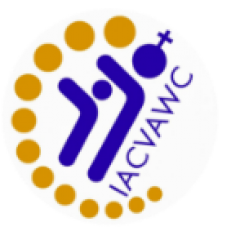National Assessment on the Implementation of Republic Act No. 9262: Anti-Violence Against Women and their Children Act of 2004
Towards the protection, promotion, and fulfillment of women’s human rights, the Philippines has established policies and mechanisms based on fundamental freedoms guaranteed under the Philippine Constitution and international instruments such as the Convention on the Elimination of Discrimination against Women (CEDAW) and the Universal Declaration of Human Rights (UDHR).
One landmark legislation was the enactment of Republic Act No. 9262 or the Anti-Violence Against Women and their Children (VAWC) Act in 2004 to address the perils faced by women at the hands of their current or former intimate partners. The law also paved the establishment of the Inter-Agency Council on Violence Against Women and their Children (IACVAWC) to be the primary coordinating and monitoring body for VAWC programs. Since then, the IACVAWC has adopted numerous resolutions and a total of three (3) successive strategic plans to coordinate the action of its member-agencies in implementing the law.
The law will be entering its 20th year of enactment by 2024. However there has been no comprehensive review of its implementation aside from the previous evaluations of the Council’s Strategic Plans. This is a vital gap in determining the relevance of the law and ensuring that its implementation still meets the purpose and standards by which it was originally passed. It is vital to assess the law’s strengths and weaknesses to extract strategies for improved execution.
With the Council’s guidance, the Philippine Commission on Women (PCW) is leading the conduct of the national assessment of RA 9262. The Commission has completed the desk review of related studies and reports, research design, data gathering tools, and other preparatory work for the full-blown assessment.
The assessment aims to:
- Highlight the emerging outcomes of implementation, particularly in terms of primary prevention, response system, and cross-cutting structures and actions;
- Identify and document good practices and lessons learned that could be strengthened or sustained to improve the efficiency and effectiveness of implementation;
- Examine the effectiveness of the law in addressing current and emerging forms/trends of VAW, especially those committed through information and communications technology, during crisis situations and other special circumstances;
- Pinpoint weaknesses in implementation that hamper women’s quest for justice or resolution of their cases as well as gaps in measures for the rehabilitation of offenders such as in counseling and treatment; and,
- Generate recommendations to improve planning and programming, particularly in the development of the next strategic plan and in proposing amendments to RA 9262.
Aside from the law itself, the third IACVAWC Strategic Plan (2017-2022) will also serve as a major reference point in examining how duty bearers at the national, subnational, and local levels have fared in executing their mandates under the law.
To date, the IACVAWC Secretariat is coordinating with concerned agencies and other stakeholders for the smooth execution of assessment-related activities. A Development Consulting Firm has also been engaged to pre-test the data gathering tools, train field researchers, gather data/reports and conduct key informant interviews with victim-survivors and offenders, focus group discussions with duty bearers, and satisfaction surveys for those who were able to receive VAW-related services.
For more information, please contact the IACVAWC Secretariat at iacvawc@pcw.gov.ph or (02) 8735-1654 local 123 or 124.

